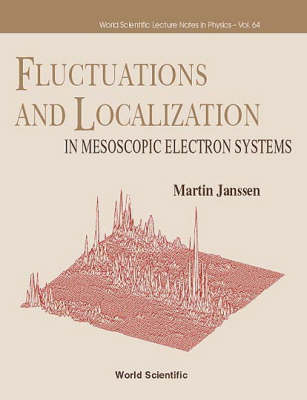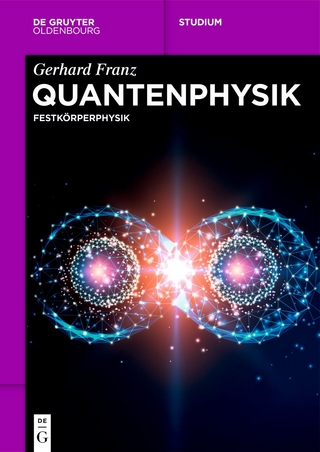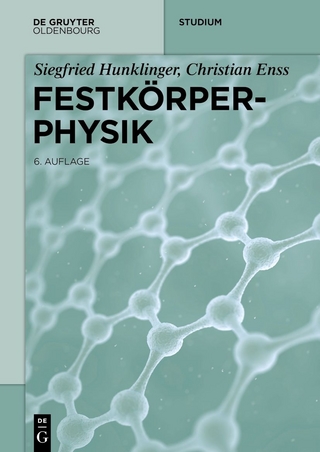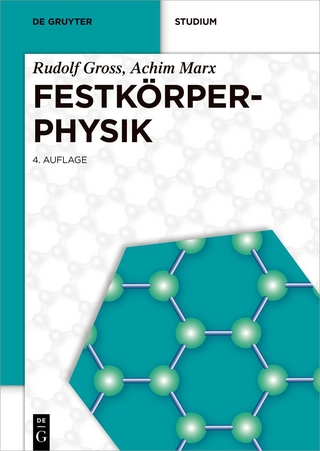
Fluctuations And Localization In Mesoscopic Electron Systems
Seiten
2001
World Scientific Publishing Co Pte Ltd (Verlag)
978-981-02-4209-1 (ISBN)
World Scientific Publishing Co Pte Ltd (Verlag)
978-981-02-4209-1 (ISBN)
- Titel z.Zt. nicht lieferbar
- Versandkostenfrei innerhalb Deutschlands
- Auch auf Rechnung
- Verfügbarkeit in der Filiale vor Ort prüfen
- Artikel merken
Based on elementary quantum and statistical physics, this text introduces the theory of mesoscopic electron systems. It focuses on universal characteristics of fluctuations and on the localization mechanism. General concepts and methods are stressed, and involved technical details are omitted.
The quantum phenomena of tunneling and interference show up not only in the microscopic world of atoms and molecules, but also in cold materials of the real world, such as metals and semiconductors. Though not fully macroscopic, such mesoscopic systems contain a huge number of particles, and the holistic nature of quantum mechanics becomes evident already in simple electronic measurements. The measured quantity fluctuates as a function of applied fields in an unpredictable, yet reproducible way. Despite this fingerprint character of fluctuations, their statistical properties are universal, i.e. they are the same for a large class of different mesoscopic systems, having only very few parameters in common. Localization of electrons is a dramatic effect of destructive interference. As a consequence a metal can become an insulator while reaching mesoscopic scales.Based on elementary quantum and statistical physics, this text introduces the theory of mesoscopic electron systems. It focuses on universal characteristics of fluctuations and on the localization mechanism. General concepts and methods are stressed, such as scaling laws for distribution functions. Tools from condensed matter theory are used flexibly. Involved technical details are skipped so as to present a broad overview of the field, including topics like quantum dots, the quantum Hall effect and a number of the most recent developments.
The quantum phenomena of tunneling and interference show up not only in the microscopic world of atoms and molecules, but also in cold materials of the real world, such as metals and semiconductors. Though not fully macroscopic, such mesoscopic systems contain a huge number of particles, and the holistic nature of quantum mechanics becomes evident already in simple electronic measurements. The measured quantity fluctuates as a function of applied fields in an unpredictable, yet reproducible way. Despite this fingerprint character of fluctuations, their statistical properties are universal, i.e. they are the same for a large class of different mesoscopic systems, having only very few parameters in common. Localization of electrons is a dramatic effect of destructive interference. As a consequence a metal can become an insulator while reaching mesoscopic scales.Based on elementary quantum and statistical physics, this text introduces the theory of mesoscopic electron systems. It focuses on universal characteristics of fluctuations and on the localization mechanism. General concepts and methods are stressed, such as scaling laws for distribution functions. Tools from condensed matter theory are used flexibly. Involved technical details are skipped so as to present a broad overview of the field, including topics like quantum dots, the quantum Hall effect and a number of the most recent developments.
Experimental facts; basic theoretical models and tools; idealized systems; towards realistic systems; the localization-delocalization transition.
| Erscheint lt. Verlag | 18.6.2001 |
|---|---|
| Reihe/Serie | World Scientific Lecture Notes In Physics ; 64 |
| Verlagsort | Singapore |
| Sprache | englisch |
| Themenwelt | Naturwissenschaften ► Physik / Astronomie ► Festkörperphysik |
| Naturwissenschaften ► Physik / Astronomie ► Thermodynamik | |
| ISBN-10 | 981-02-4209-3 / 9810242093 |
| ISBN-13 | 978-981-02-4209-1 / 9789810242091 |
| Zustand | Neuware |
| Haben Sie eine Frage zum Produkt? |
Mehr entdecken
aus dem Bereich
aus dem Bereich


